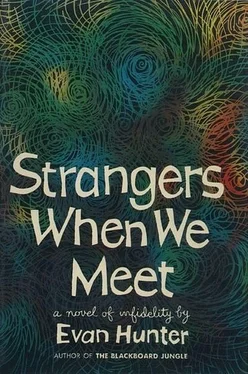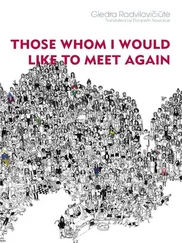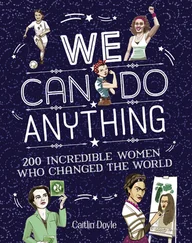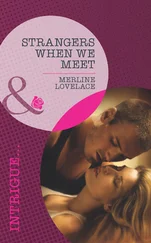They had called Pat, the motel owner, and asked him to save a cabin for them, and he’d promised he would. It was only five-thirty, and the evening and the night were ahead of them. He was wearing a dark-blue suit with no topcoat, it was that mild, and she wore a red dress with a scoop neckline and cap sleeves, simulated ruby earrings on her ears. She looked quite beautiful and he felt very handsome in his blue suit. They felt as if they were really going out. It was strange, but this Tuesday night had the air of an occasion.
They ate at a small place with a pond and swans. There was candlelight at the table, and he ordered martinis first, with olives please, and the waiter brought them martinis with lemon peels, please. When they repeated their request for olives, he brought them a soup bowl full of olives. They each put four into their drinks and then ordered steaks and a bottle of Burgundy.
She did not do justice to the meal. She confessed later that she’d had a bite with Don before leaving the house; it was bad enough she’d rushed out like that, the least she could do was have dinner waiting for him when he got home from work. But she watched Larry eating, and she sipped at the Burgundy, and the color of the wine caught the color of her mouth and the glowing red of the earrings so that he leaned over the table once and kissed her fleetingly. They talked about everything they’d done that week, like a husband and wife who’ve been separated and have hundreds of stories to relate.
They talked and drank and smoked, and they watched dusk fingering the pond, watched the swans’ white down turn blue-purple smoky as the late sun faded. When they finished their meal, they walked around the pond to the car. A piano was going in the cocktail lounge, and they listened to “I’ll Remember April.” Neither spoke. He walked with his arm around her; she with her head on his shoulder.
They did not see the yellow Buick which pulled out behind them when they left the restaurant.
On the way to the motel, she remembered that she’d promised to call Don when she got to Brooklyn. They drove until they spotted a small roadhouse with the round telephone plaque outside. The place was one of those which never seem to do any business. The dining room was off to the left, dim except for a small light burning over a separate entrance door at the far end. There were no diners in the room. The telephone booth was set against the wall near the swinging doors to the kitchen. Maggie squeezed his hand and walked toward the booth; Larry went into the bar to get a package of cigarettes from the machine there. The bar was empty, except for the bartender. When he got his cigarettes, he sat at the bar, his back to it. Through the windows, he saw a yellow Buick pull off the road and then cut in to park alongside the dining room.
He sat for a few moments, noticed the juke box, went over to it, and studied the selections. He wondered if he should play a record while Maggie was talking to Don. Well, she was supposed to be at a shower. Surely girls at a shower could play music. He made his selection and went back to the stool.
“Help you, sir?” the bartender asked.
“No, thanks,” he said.
He opened the package of cigarettes, lighted one, and blew out a great cloud of smoke. Sitting and smoking, he listened to the record. When it ended, he put another coin in the juke and made another selection. It did not occur to him until the second record had spun through that Maggie was taking an inordinately long time in the phone booth. His first thought was that Don was giving her static. Figuring she could use some moral support, he stubbed out his cigarette and started for the dining room.
The boy was no older than nineteen.
He wore khaki trousers and a sports shirt. The door to the phone booth was open, and the boy was leaning into the opening.
The boy said, “Margaret, all I want...”
Larry quickened his step.
Maggie was sitting in the booth motionless. Her purse was in her lap, and her hands were clasped over the purse. She was looking at the floor of the booth, not raising her eyes to meet the gaze of the muscular young man who stood hulking over her. Larry walked directly to the booth.
“Did you want something, Bud?” he asked.
The boy did not turn. Without looking at Larry, he said, “Shove off.”
He was as tall as Larry, heavier, with bright red hair, huge arms, and a barrel chest. He stood with his broad back to Larry, his arms widespread, a palm against each side of the booth as he leaned into the opening. Completely ignoring Larry, he said, “All I want you to tell me is—”
“The lady’s with me,” Larry said. “Get away from her.”
The boy turned. His eyes flicked Larry in a fast appraisal. “You can go to hell,” he said. “I’ve been waiting a long time to—” and Larry hit him.
He hit him quite suddenly, almost before he knew what he was doing. He brought up his left fist and threw it forward in a short sharp furious jab that caught the boy on the point of his chin and sent him staggering from the booth to collide with the wall.
The boy pushed himself from the wall, cocked his fists, took a step forward, and said, “Okay, mister. You asked for it.” And then he lunged at Larry.
He first blow caught Larry on the side of his face, and he felt shocking pain as he backed away. The second punch hit him in the gut, as painful as the first, but with a dangerous accompanying effect. The second punch brought instant rage to Larry’s throat and eyes. In the space of three seconds, all of his war training came back to him. He planted his feet solidly, balanced himself, and curled his fists into hard, tight, destructive weapons. He knew that if this boy threw another punch at him, he would kill him. He would strike at his Adam’s apple and kill him. His fists balled, he waited for the boy’s attack.
The boy hesitated in mid-stride.
“Come on,” Larry said. There was barely controlled fury in his voice. His body strained forward as he waited. His eyes were unblinking, cold with menace. Perhaps the boy saw what was in Larry’s eyes. The attack did not come. Instead, the boy lowered his hands.
“Come on!” Larry said.
The boy did not move. Fear mingled with shame on his face, and then his shoulders seemed to collapse in total defeat. “All right!” he said, seemingly on the verge of tears, but he did not move. “All right, it’s over. All right, all right, it’s over,” and still he did not move.
Larry waited. The boy’s embarrassment and defeat made him curiously sad. There seemed to be countless things the boy wanted to say, but he only kept repeating senselessly, “All right, it’s over; all right, it’s over,” and then he turned abruptly and ran for the door at the far end of the room. The door slammed shut behind him. The room was still. Larry turned to the booth where Maggie sat motionless.
“Are you all right?” he asked.
Maggie nodded, but she did not look at him. Outside, an automobile started. Tires grasped shriekingly at gravel.
“Come,” he said gently. He took her hand and led her out of the booth. The yellow Buick was gone when they got outside.
In the car, he asked, “What happened?”
She was sitting silently close to him while he drove, her hands clasped over her purse. “He came in the side door after I was talking a while,” she said. “He waited until I was finished, and then he wouldn’t let me out of the booth. Did he hurt you?”
“No. What did he want?”
“If you’re bruised, you’ll have to explain it to—”
“What did he want?”
“The same thing they all want,” Maggie said softly.
“All? How often does this kind of thing happen?”
“Often enough. Forget it, Larry, please. You were very sweet and foolish, and I appreciate it. But please forget it. I’m used to it.”
Читать дальше












